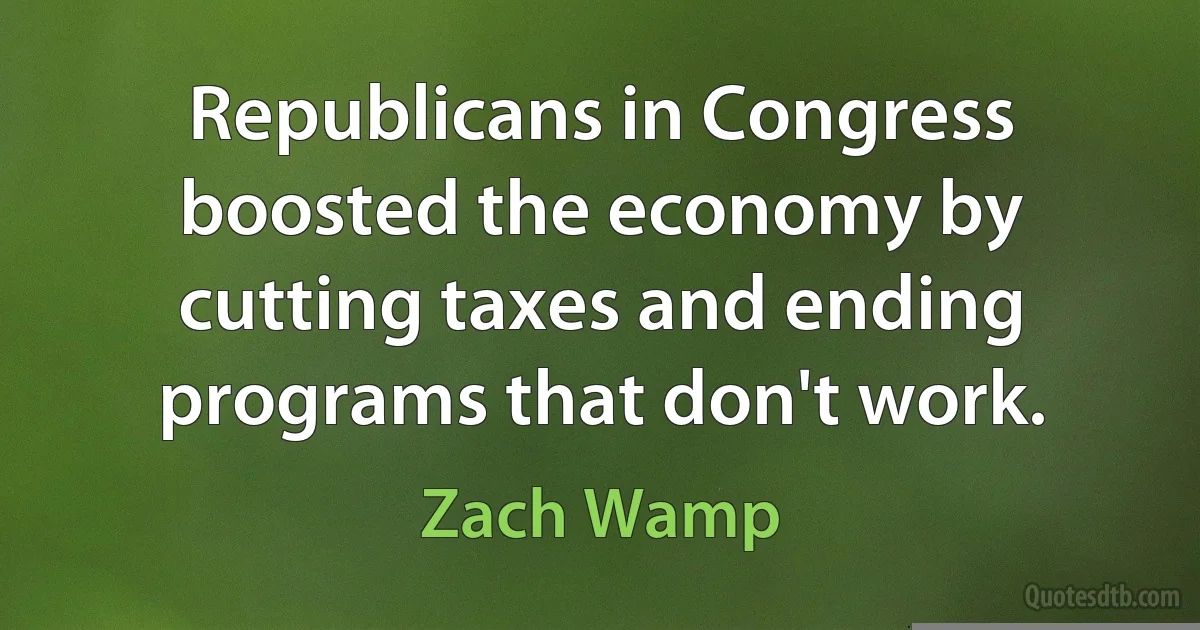Congress Quotes - page 12
If I am elected President, I will work with anyone who sincerely wants to get this country moving again. I will listen to any idea that is offered in good faith and intended to help solve our problems, not make them worse. I will seek the counsel of members of Congress from both parties in forming government policy before I ask them to support it. I will ask Democrats to serve in my administration. My administration will set a new standard for transparency and accountability. I will hold weekly press conferences. I will regularly brief the American people on the progress our policies have made and the setbacks we have encountered. When we make errors, I will confess them readily, and explain what we intend to do to correct them. I will ask Congress to grant me the privilege of coming before both houses to take questions, and address criticism, much the same as the Prime Minister of Great Britain appears regularly before the House of Commons.

John McCain
Three days after Richard Henry Lee introduced the Resolution of Independence, it was voted to appoint a committee to "prepare a declaration to the effect of the said first resolution." The committee, appointed on the following day, consisted of Thomas Jefferson, John Adams, Benjamin Franklin, Roger Sherman, and Robert R. Livingston. On the 28 of June, the committee reported to Congress the draft of a declaration which, with modifications, was finally agreed to by Congress on the 4 of July. This is the document which is popularly known as the Declaration of Independence.

Carl L. Becker
It is difficult for most of us to think of our ideals and our theories in terms of reality. We have talked and written of Swaraj for years, but when Swaraj comes it will probably take us by surprise. We have passed the independence resolution at the Congress, and yet how many of us realise its full implications? How many belie it by their words and actions? For them it is something to be considered as a distant goal, not as a thing of today or tomorrow. They talk of Swaraj and independence in their councils but their minds are full of reservations and their acts are feeble and halting.

Jawaharlal Nehru
June 7, 1776, Richard Henry Lee, on behalf of the Virginia delegation, submitted to the Continental Congress three resolutions, of which the first declared that "these United Colonies are, and of right ought to be, free and independent States, that they are absolved from all allegiance to the British Crown, and that all political connection between them and the State of Great Britain is, and ought to be, totally dissolved. This resolution, which may conveniently be called the Resolution of Independence, was finally voted by the Continental Congress on the 2 of July, 1776. Strictly speaking, this was the official declaration of independence; and if we were a nation of antiquaries we should no doubt find an incongruity in celebrating the anniversary of our independence on the 4 of July.

Carl L. Becker
If you're very very rich, you can buy your Senate seat by spending as much of your money as you want. Meanwhile, your poor plebian opponent is running around groveling for the small contributions allowed by law. Hence the Corzines and the Kohls, who parachute into Congress seemingly out of nowhere. Having given this leg up to the rich, we should resist packing our legislatures with yet more privileged parachutists, the well-born. True, the Brits did it that way for centuries, but with characteristic honesty. They established a house of Parliament exclusively for high-born twits and ensconced them there for life. There they chatter away in supreme irrelevance deep into their dotage. Problem is that the U.S. Senate retains House of Commons powers even as it develops a House of Lords membership.

Charles Krauthammer
To make a law final, so as not to be reached by Congress, is, by mere legislation, to fasten a new provision on the Constitution. Nay, more; it gives to the law a character which the very Constitution docs not possess. The wise fathers did not treat the country as a Chinese foot, never to grow after infancy; but, anticipating Progress, they declared expressly that their great Act is not final. According to the Constitution itself, there is not one of its existing provisions - not even that with regard to fugitives from labor - which may not at all times be reached by amendment, and thus be drawn into debate. This is rational and just. Sir, nothing from man's hands, nor law, nor constitution, can be final. Truth alone is final.

Charles Sumner
Undocumented aliens unfortunately are not protected by the law and they are tremendously subjected to exploitation. The result is that they would be willing to work for a wage that no person who is welcome in our shores would, would take. I think the answer to that problem is in Congress' lap. People who have been hardworking, tax paying, those people ought to be given an opportunity to be on a track that leads towards citizenship and if that happened, then they wouldn't be prey to the employers who say "we want you because we know that you work for a salary we could not lawfully pay anyone else."

Ruth Bader Ginsburg
[My] approach recognizes the basic principle of a written Constitution. We "the people" adopted a written Constitution precisely because it has a fixed meaning, a meaning that does not change. Otherwise we would have adopted the British approach of an unwritten, evolving constitution. Aside from amendment according to Article V, the Constitution's meaning cannot be updated, or changed, or altered by the Supreme Court, the Congress, or the President. Of course, even when strictly interpreted as I believe it should be, the Constitution remains a modern, "breathing" document as some like to call it, in the sense that the Court is constantly required to interpret how its provisions apply to the Constitutional questions of modern life. Nevertheless, strict interpretation must never surrender to the understandably attractive impulse towards creative but unwarranted alterations of first principles.

Clarence Thomas
We Americans have a method for making the laws that are over us. We elect representatives to two Houses of Congress, each of which must enact the new law and present it for the approval of a President, whom we also elect. For over two decades now, unelected federal judges have been usurping this lawmaking power by converting what they regard as norms of international law into American law. Today's opinion approves that process in principle, though urging the lower courts to be more restrained. This Court seems incapable of admitting that some matters - any matters - are none of its business.

Antonin Scalia
Legislative flexibility on the part of Congress will be the touchstone of federalism when the capacity to support combustion becomes the acid test of a fire extinguisher. Congressional flexibility is desirable, of course - but only within the bounds of federal power established by the Constitution. Beyond those bounds (the theory of our Constitution goes), it is a menace.

Antonin Scalia
All of you know I'm having to become quite an expert in this business of asking for forgiveness. And I ----. It gets a little easier the more you do it. And if you have a family, an Administration, a Congress and a whole country to ask, you're going to get a lot of practice. But I have to tell that in these last days it has come home to me again, something I first learned as President, but it wasn't burned in my bones -- and that is that in order to get it, you have to be willing to give it. And all of us -- the anger, the resentment, the bitterness, the desire for recrimination against people you believe have wronged you -- they harden the heart and deaden the spirit and lead to self-inflicted wounds. And so it is important that we are able to forgive those we believe have wronged us, even as we ask for forgiveness from people we have wronged. And I heard that first -- first -- in the Civil Rights Movement. Love thy neighbor as thyself.

Bill Clinton
Next, we must help parents protect their children from the gravest health threat that they face -- an epidemic of teen smoking, spread by multimillion dollar marketing campaigns. I challenge Congress -- let's pass bipartisan, comprehensive legislation that will improve public health, protect our tobacco farmers and change the way tobacco companies do business forever. Let's do what it takes to bring teen smoking down. Let's raise the price of cigarettes by up to $1.50 a pack over the next 10 years with penalties on the tobacco industry if it keeps marketing to our children.

Bill Clinton


![I think [that] '[t]he judicial Power of the United States' conferred upon this Court 'and such inferior courts as Congress may establish', must be deemed to be the judicial power as understood by our common-law tradition. That is the power 'to say what the law is', Marbury v. Madison, 1 Cranch 137, 177 (1803), not the power to change it. (Antonin Scalia)](https://cdn.quotesdtb.com/img/quotes_images_webp/95/antonin-scalia-change-congress-321195.webp)
